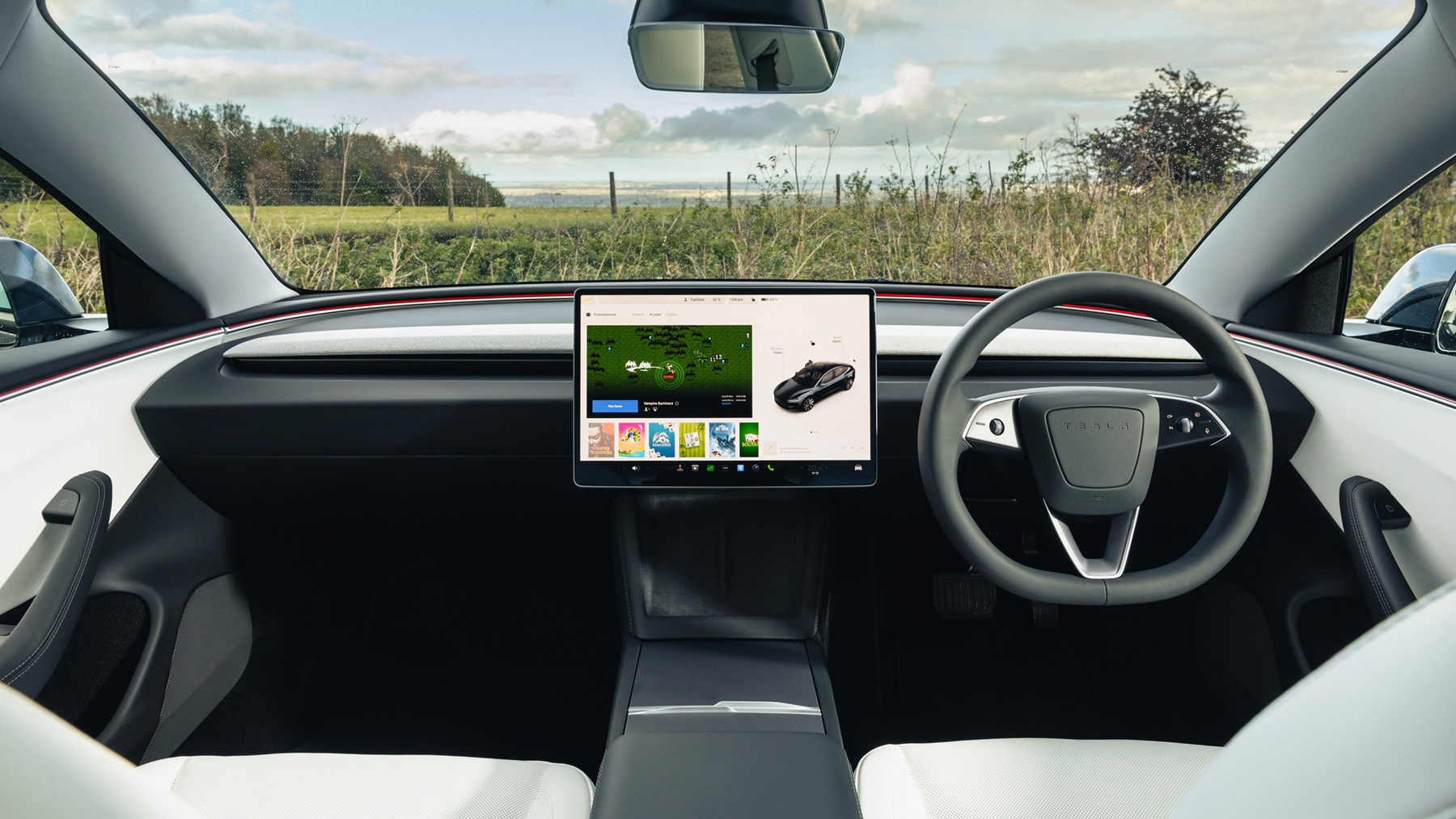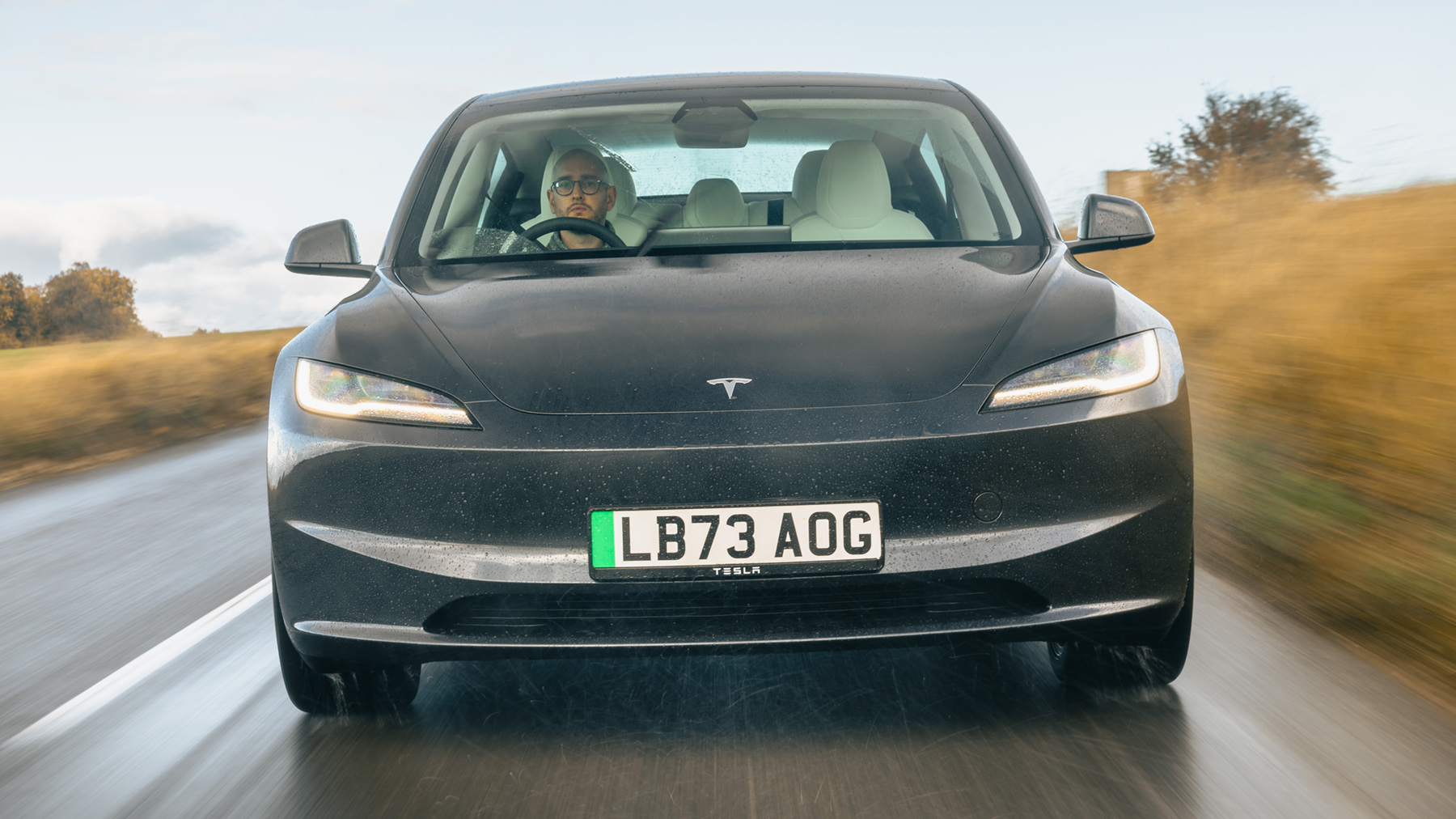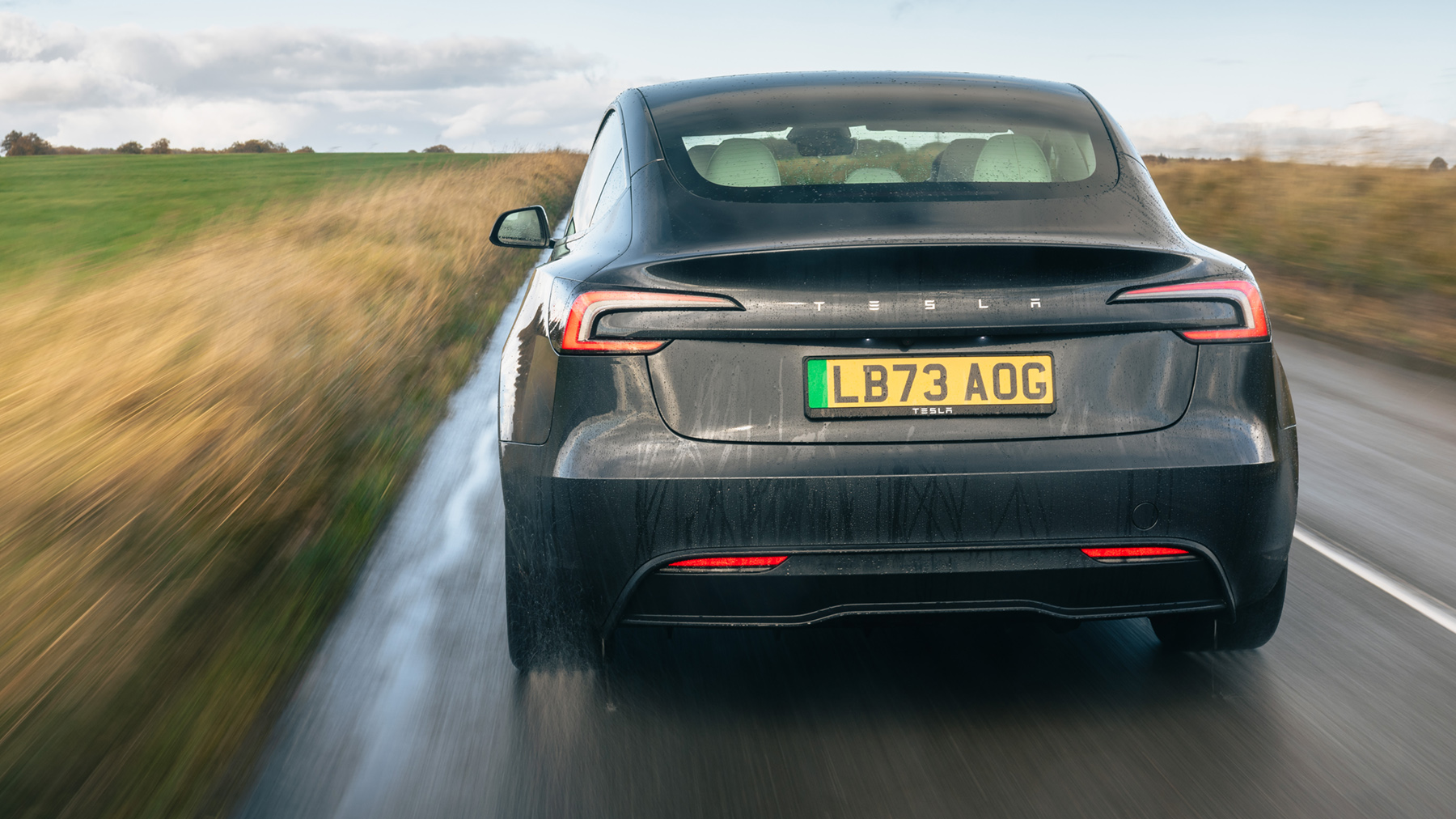
Buying
What should I be paying?
The Model 3 will cost you £39,990 for the entry-level RWD version of the car, £44,990 for the Long Range RWD car that offers the furthest range at 436 miles, £49,990 for the Long Range AWD model and £59,990 for the spicier Performance car.
But who pays cash up front these days? At the time of writing Tesla will lease you a base-spec Model 3 for £347 a month for 30,000 miles over three years with a six-month down payment plus a £900 processing fee.
What are the options like?
As standard there’s a plethora of features, from heated/cooled electric seats to built-in karaoke, internet browsing with Netflix and YouTube apps, a tinted glass roof, electric folding and adjustable door mirrors, and wireless phone charging.
The choices when they come are refreshingly simple: white is free, it’s £1,300 for the black, blue or grey paint and £2,000 for perkier red or silver. You can go for bigger 19in wheels (18s are standard) at £1,500, a tow bar (the Model 3 can tow up to 1,000kg) for £1,300, a black and white interior package (£1,100), and the Enhanced Autopilot and Full Self-Driving Capability for £3,400 and £6,800 apiece. Like we said earlier, you can avoid those last two.
Beware upgrading to 19in rims – they’ll pinch range due to added rolling resistance – and we’d shun the white interior scheme. Even if you’re only keeping your Tesla for a handful of years, the upholstery will be looking tired if you have children, pets or wear denim.
What does charging cost?
Whereas Superchargers used to be free with the Model S and Model X, you have to pay as you go with the 3. Although in some cases there's an allowance that'll give you a few top-ups per year for free. You can expect to pay around 69p/kWh on average, though prices vary between locations and depending on whether you charge at peak or off-peak times.
You’ll spot the red and white Supercharger stations at most motorway services now, although the car will automatically guide you to one if you’re using the satnav on a long journey. Tesla has over 1,100 individual Supercharger charging points across nearly 100 separate locations in the UK, with more on the way.
Sweet. How long will charging take?
Plug in at one of these and the fastest will offer up to 250kW of power (though the entry car can only accept 170kW at most), enough to add 172 miles of range in about 15 minutes. You can use other, non-Tesla CCS charging stations too, though some are more expensive than others.
Plug the car into your three-pin wall socket at home and the juice crawls along, adding about five miles of range for every hour. Get a home wall box and you could charge at up to 16.5kW depending on your home connection – that’s 51 miles for every hour plugged in.
More realistic for most UK homes is around 7kW, or 22 miles per hour of charging. More than enough for an overnight refill. Charging your electric car at home will cost less than 10p/kWh if you find the right off peak tariff, well worth it if you have the capability. Topping up a Long Range this way will cost you £25.
What about rivals?
More EV contenders have come on stream, with the likes of the Polestar 2, BMW i4 and Ford Mustang Mach-E barging their way into the frame. The latter is more of a crossover of course, but if you need more space in your Tesla, there’s the higher Model Y. The Hyundai Ioniq 5 is a stylish choice (as is the Ioniq 6 saloon) and we like the Kia Niro EV for range and family practicality.
Featured

Trending this week
- Car Review
Renault Clio






